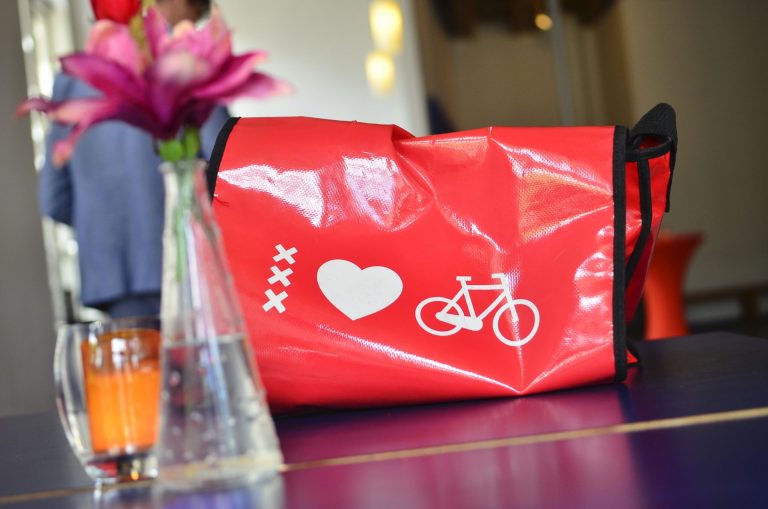This program is in Dutch.
The use of data in society is increasing strongly. Nowadays, a lot of data is also produced, collected and used in the mobility sector. Think of information from public transport, but also the data from route planners, e-steps and sharing bicycles. Insights from these data can be of great value to keep the city viable in terms of mobility. But how do we treat all of this data? What happens with the data flow from your route planner? And how can you, as a resident, influence what decisions are made or what revenue models are built on bicycle data?
On this evening we explore, together with experts and the public, the future of mobility data starting with the bicycle. What is a pleasant city to cycle in? And how can data streams be used to optimise the infrastructure? This public evening is the chance to express your perspective. The input from the public will be taken to the design meetings of the Mobility Lab Bicycle Data Commons.
Admission is free, registration is possible through Pakhuis de Zwijger.
Program: 20-22 hrs
- Introduction: What are data commons?
- Q&A with Socrates Schouten, Waag / Chamber of Commons.
- Keynote by Ruben Verborgh, professor of semantic web technology at Ghent University and researcher at the Decentralized Information Group of MIT. Together with Sir Tim Berners-Lee, inventor of the World Wide Web, he is working on Solid: a new architecture for the web.
- Interview with Vincent Lau, municipality of Amsterdam, and Janine Hogendoorn, Ring-Ring.
Data commons
In the Mobility Lab Bicycle Data Committees, we investigate how the use of bicycle data can be shaped. We do this based on the concept of data commons. Data commons are data platforms for shared use where the community jointly sets the rules for access and use. The data commons are a new way to organize the data and give it back to the citizen.
Mobility lab Bicycle data commons
The Mobility Lab Bicycle Data Commons is organized by CTO Amsterdam, Amsterdam Transport Region and Waag. We work out on the basis of the preconditions that the various parties want to share data within data committees. We do this through public evenings and three design sprints, to which residents, entrepreneurs and policy makers will be invited.
